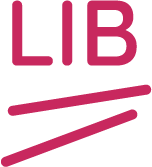PhenoRob is a DFG-funded Cluster of Excellence at the University of Bonn. Several German research institutions are involved in the Cluster. The Forschungszentrum Jülich is a participating institution. Other cooperation partners are the Leibniz Centre for Agricultural Landscape Research (ZALF) in Müncheberg, the Institute of Sugar Beet Research (IfZ) in Göttingen, and the Fraunhofer Institute for Intelligent Analysis and Information Systems (IAIS) in Sankt Augustin.
University of Bonn: Since 2019, the Rheinische Friedrich-Wilhelms-Universität Bonn is one of eleven German Universities of Excellence. It has six Clusters of Excellence - more than any other university funded under the Excellence Strategy, making Bonn University one of Germany’s leading universities. The university offers a wide range of degree programs for its 35,000 students. Our Cluster integrates two faculties at the University of Bonn: Agriculture as well as Mathematics and Natural Sciences. PhenoRob is part of the Transdisciplinary Research Area (TRA) Technology and Innovation for Sustainable Futures, a research alliance focusing on the issue of sustainability.
Forschungszentrum Jülich (FZJ): Forschungszentrum Jülich participates in the Cluster with the Institute of Bio- and Geosciences focusing on Plant Sciences (IBG-2) and Agrosphere (IBG-3) focusing on phenotyping and agro-ecosystem models. Forschungszentrum Jülich coordinates the German, European and International Network on Plant Phenotyping. The research center also coordinates the TERENO initiative, a coordinated network of four terrestrial observatories in Germany for long-term environmental monitoring. Additionally, the EMPHASIS initiative orchestrates phenotyping activities across Europe. Forschungszentrum Jülich also has a strong record in high-performance scientific computing and research data management.
Leibniz Centre for Agricultural Landscape Research (ZALF): The Leibniz Centre for Agricultural Landscape Research aims to explain causal relationships in agricultural landscapes to support their sustainable use. ZALF performs, among other things, landscape manipulation experiments to investigate and model the implications of new field arrangements. This happens through novel technologies developed by PhenoRob on environmental indicators and biodiversity.
Institute of Sugar Beet Research (IfZ): The Institute of Sugar Beet Research at the University of Göttingen develops concepts for sustainable cultivation of sugar beet. The Institute integrates phytomedicine, physiology, agronomy, and technical research. In particular, the institute provides expertise on using non-invasive sensor technologies to assess biotic and abiotic plant stresses. The Institute organizes large-scale field trials on different crop rotations.
Fraunhofer Institute for Intelligent Analysis and Information Systems (IAIS): The Fraunhofer Institute for Intelligent Analysis and Information Systems develops data management and machine learning techniques for the creation of intelligent systems. In particular, the Institute has a strong research background in linked open data and its use for data management, data integration, and data provisioning in the sciences, including metadata handling, data space structures, and fundamental principles of data sharing.
Leibniz Institute for the Analysis of Biodiversity Change (LIB): The Leibniz Institute for the Analysis of Biodiversity Change will be part of PhenoRob from 2026 and conducts research in evolutionary biology and applied ecosystem science. It integrates taxonomy, genomics, and biodiversity monitoring to analyze species and their roles in ecosystems over time. The LIB maintains a collection of over 16 million specimens and provides expertise on documenting and understanding biodiversity. The institute also collaborates on long-term monitoring and develops science-based strategies to address global biodiversity loss.





